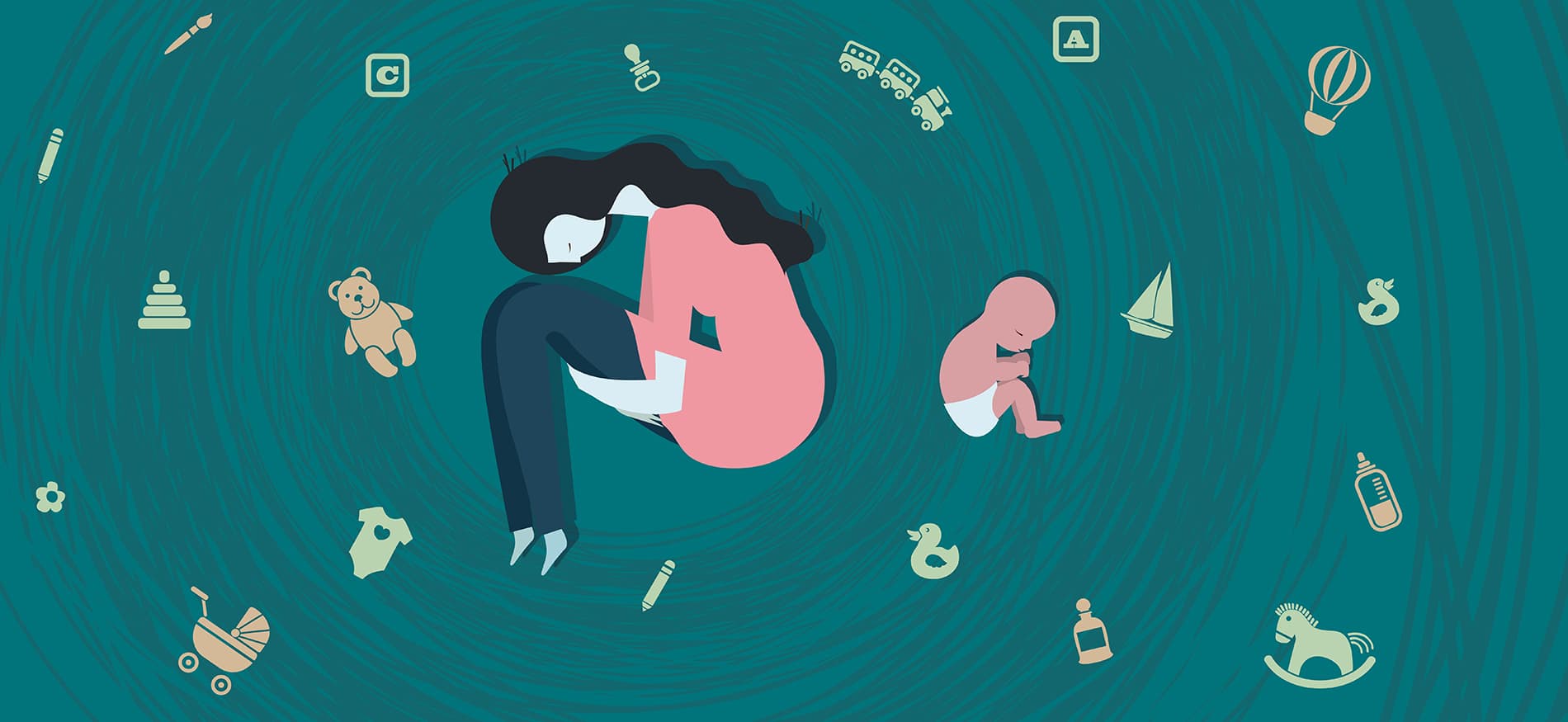Female Topics
POSTPARTUM DEPRESSION
By A.A. (staff writer) , published on October 08, 2021

Medicine Telehealth Health postpartum postpartum depression
A child's birth can elicit a wide range of strong emotions, from joy and excitement to dread and anxiety. However, it can also lead to something unexpected: depression. After childbirth, most new mothers have postpartum "baby blues," which include mood changes, crying episodes, anxiety, and problems sleeping. The baby blues usually start two to three days after delivery and can linger for up to two weeks.
However, some new mothers suffer from postpartum depression, which is a more severe and long-lasting form of depression. After childbirth, an intense mental illness known as postpartum psychosis may occur.
Postpartum depression isn't a shortcoming or a weakness in anyone's character. Sometimes it's just a side effect of giving birth. If you suffer from postpartum depression, getting help as soon as possible will help you manage your symptoms and bond with your baby1.
Causes of Postpartum Depression
The symptoms of postpartum depression are initially caused by hormonal changes. The levels of hormones like estrogen and progesterone increase to the highest levels in females during pregnancy. The levels of hormones readily get back to normal after the delivery or childbirth.
After childbirth, the levels of thyroid hormone may also decrease. The thyroid gland is present in the neck and is small in size that aids in the process of how your body utilizes and stores food energy. Thyroid hormone deficiency might lead to depression symptoms. If this condition is the cause of the symptoms, a simple blood test can determine whether it is the cause. If this is the case, your doctor may prescribe thyroid medication. Other emotions may play a role in postpartum depression. Many new mothers express the following emotions:
- Exhausted after labor and delivery
- Broken sleep or lack of sleep
- Happy with a newborn baby
- No free time
- No attraction
- Stress-related to home routine and changes in work
- Doubt their ability to be a good mother
Among new mothers, these are normal emotions. Moreover, postpartum depression is a significant medical illness that may be addressed. Postpartum depression is not a common or anticipated occurrence for new mothers2.
What are the symptoms of postpartum depression?
However it's natural to feel cranky or tired after giving birth, postpartum depression is a serious condition. It has strong symptoms that might make it difficult to perform daily activities.
Postpartum depression symptoms differ from person to person and even day today. If you experience postpartum depression, you're probably aware of several of these symptoms:
- Cry a lot or feel sad without any reason.
- Lack of sleep even if you are exhausted.
- Sleeping too much.
- Feeling not hungry, no interest in food, or eating too much.
- Unexplained pains, illness, or aches.
- Feeling of anxiety, irritability, and anger without any reason.
- Sudden mood changes without any reason.
- Memory issues.
- Unable to make simple decisions and lack of concentration.
- Lack of interest in things once you enjoy them.
- Lack of happiness, and feeling disconnected from the baby.
- Hopeless and overwhelming feelings.
- Experiencing guilt and worthlessness.
- You thought that you are a bad mother and can't talk to people about your motherhood.
- You want to leave everything and everyone.
- Lack of interest in the social gatherings and you become distant from the company of friends and family3.
Treatment for postpartum depression
If you are experiencing signs and symptoms of postpartum depression, you should contact a doctor as soon as possible to begin therapy. Medication and therapy are the two basic therapies for postpartum depression. Both can be used independently, but they may be more effective when combined. However, it is effective if you follow healthy habits in your daily routine. Finding a treatment that works for you may take some time. You should be in contact with your doctor during the course of the treatment.
Medications
Antidepressants work by affecting the brain directly. They change the levels of molecules in the brain that control mood. But their action is not instant. You may experience a change in the mood a few weeks after taking the medicine.
Antidepressants can cause negative effects in some people. Fatigue, sexual dysfunction, and dizziness are all possible symptoms. Tell your doctor straight away if side effects seem to be making your symptoms worse. While some antidepressants are safe to use while breastfeeding, some are not. If you breastfeed, make sure you consult your doctor. Your doctor may suggest hormone therapy if your estrogen levels are low.
Therapy
Counseling can be done by a mental health practitioner, psychiatrist, and psychologist. Other therapies can assist you in making sense of your harmful ideas and provide techniques for dealing with them.
Self-care
You should avoid alcohol since it has depressive action. In such a situation, your aim must be to recover your body. Consuming a well-balanced diet and physical activity every day, even if it's only a stroll around the block. Most women feel better after six months of treatment, though it might take longer4.
References
- Postpartum depression. [Internet]. [Cited 2021 August 01 ]; Available from https://www.mayoclinic.org/diseases-conditions/postpartum-depression/symptoms-causes/syc-20376617
- Postpartum depression. [Internet]. [Cited 2021 August 01 ]; Available from https://www.womenshealth.gov/mental-health/mental-health-conditions/postpartum-depression
- Everything You Need to Know About Postpartum Depression. [Internet]. [Cited 2021 August 01 ]; Available from https://www.healthline.com/health/depression/postpartum-depression#symptoms
- Postpartum depression. [Internet]. [Cited 2021 August 01 ]; Available from https://www.healthline.com/health/depression/postpartum-depression#natural-remedies
Find articles related to: Medicine Telehealth Health postpartum postpartum depression
More articles about Female Topics
Back to the Health Tips Index




